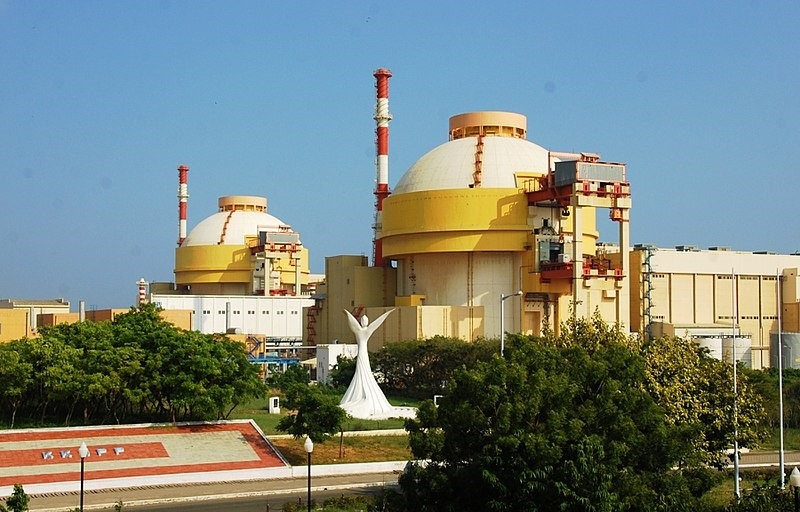New Delhi: India and France Wednesday expressed an intent to jointly develop modern nuclear reactors, emphasising that nuclear power was crucial for energy security and transition to a low-carbon economy.
The two countries signed a letter of intent on Small Modular Reactors (SMRs) and Advanced Modular Reactors (AMRs), according to a joint statement issued after Prime Minister Narendra Modi met French President Emmanuel Macron in Paris.
“Prime Minister Modi and President Macron stressed that nuclear energy is an essential part of the energy mix for strengthening energy security and transitioning towards a low-carbon economy,” according to the statement.
SMRs are compact nuclear fission reactors that can be manufactured in factories and then installed elsewhere. They typically have a smaller capacity than conventional nuclear reactors.
The two leaders also acknowledged the strong civil nuclear ties between India and France and efforts in cooperation on the peaceful uses of nuclear energy, notably in relation to the Jaitapur Nuclear Power Project.
They also renewed a memorandum of understanding between India’s Department of Atomic Energy and France’s Commissariat a l’Energie Atomique et aux Energies Alternatives of France, concerning cooperation with the Global Center for Nuclear Energy Partnership (GCNEP).
Both the nations agreed to enhance collaboration in training and education for nuclear professionals.
Later Wednesday, Modi is scheduled to meet US President Donald Trump, with nuclear power expected to be among the topics of discussion.
India aims to generate 100 gigawatts of nuclear energy by 2047 as part of its transition to clean energy.
Earlier this month, the government announced plans to launch a Nuclear Energy Mission with a budget of Rs 20,000 crore to support research and development of SMRs. As part of the initiative, India plans to operationalise at least five indigenously developed SMRs by 2033.
To enable private sector participation, the government is considering amendments to the Atomic Energy Act and the Civil Liability for Nuclear Damage Act.
At present, nuclear power plants contribute 1.8 per cent of India’s total installed power capacity of 462 gigawatts and around 3 per cent of total electricity generation. This helps save around 41 million tonnes of carbon dioxide annually.
In its Long-Term Low Emission Development Strategy submitted to the UN climate change office in 2022, India projected a threefold increase in installed nuclear capacity by 2032.
PTI


